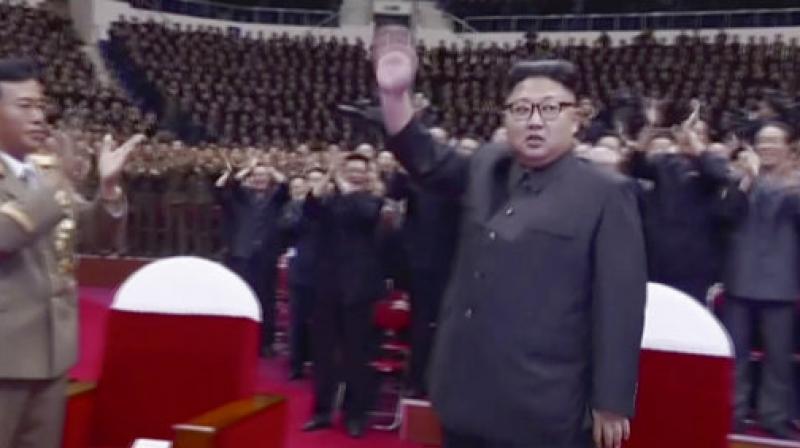China upholds UN sanctions as North Korea trade soars
Tensions rose after North Korea's test this month of an intercontinental ballistic missile that could reach the US mainland.

Beijing: China insisted Thursday it was upholding UN sanctions on North Korea despite a jump in its trade with the nuclear-armed nation that comes amid growing US calls for Beijing to rein in its neighbour.
Sino-US relations have soured in recent weeks as President Donald Trump has urged Beijing to step up diplomatic and economic pressure on North Korea over its nuclear and missile programmes.
Tensions rose after North Korea's test this month of an intercontinental ballistic missile that could reach the US mainland.
Despite Washington's calls for action, trade between China and its neighbour increased 10.5 percent to $2.5 billion in the first six months of the year compared to the same period last year, including a 29.1 percent jump in exports.
But customs administration spokesman Huang Songping said Beijing was upholding the UN sanctions against the regime of Kim Jong-Un.
"Simple accumulated data cannot be used as evidence to question China's severe attitude in carrying out UN Security Council resolutions," Huang told a news briefing.
He pointed to a 13.2 percent drop in imports from North Korea in the same period as an example of the pressure, adding that there have been sharp decreases every month since March.
"UN Security Council sanctions are not a total ban on shipments. Trade related to DPRK people's livelihood, especially those that reflect humanitarianism should not be influenced by the sanctions," Huang said.
- Iron ore up -
China announced in February the suspension of coal imports from the North, striking a blow at a major source of income for the hermit state.
Huang said coal imports dropped by three-quarters in the first half, and all those shipments had been made before February 18.
At the same time, iron ore imports have surged between January and May to $74.4 million compared to $24 million over the same period last year.
But foreign ministry spokesman Geng Shuang said UN resolution 2321 allows imports of iron and iron ore if the income is for the livelihood of civilians.
"It has nothing to do with creating income for DPRK nuclear programmes, so it is not on the sanctions list," Geng told a regular news briefing.
By comparison, imports of coal alone were worth $97.6 million just in the month of February.
- US pressure -
Trump has complained that trade increased between the two despite calling on his Chinese counterpart Xi Jinping to use the nation's unique diplomatic and economic clout over North Korea as leverage.
"Trade between China and North Korea grew almost 40 percent in the first quarter. So much for China working with us -- but we had to give it a try!" Trump tweeted on July 5.
Previous Chinese customs data showed two-way trade with the North had risen 30.6 percent in dollar terms in the first three months of the year.
The US ambassador to the UN, Nikki Haley, said on Sunday that Washington would crank up pressure on China to ensure it implements sanctions over the missile test.
She told the Security Council last week that the US planned a new resolution that would also ensure existing measures are enforced.
"We're going to push hard against China because 90 percent of the trade that happens with North Korea is from China, and so while they have been helpful, they need to do more," she told CBS television.
The Trump administration angered China last month by imposing sanctions on a Chinese bank accused of laundering North Korean cash and approving a $1.3 billion arms sale to Taiwan, which Beijing considers a breakaway province.

